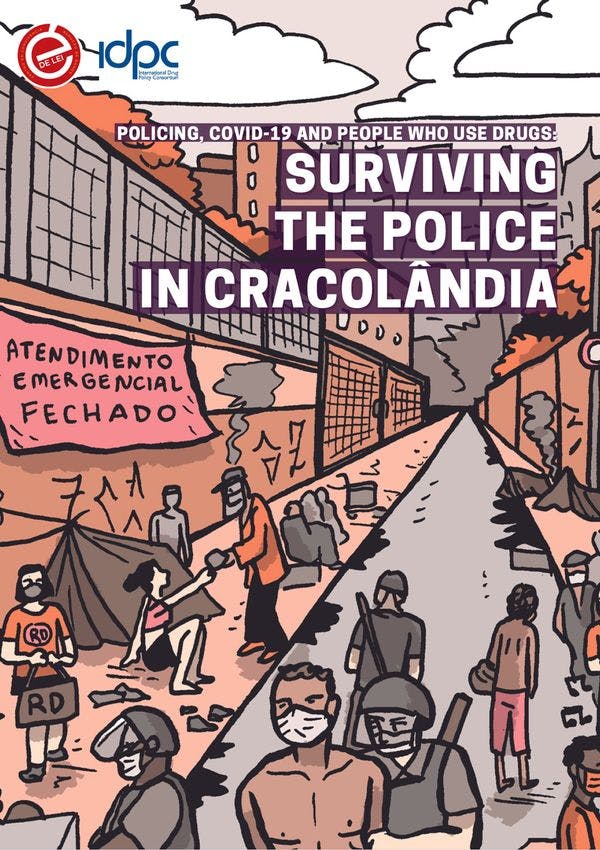La police, le COVID-19 et les personnes usagères des drogues : Survivre à la police à Cracolândia
É de Lei documente l'escalade de la violence policière pendant et après la période de confinement du COVID-19, ainsi que les stratégies de réduction des risques et de mobilisation de la communauté pour résister et lutter pour les droits des personnes qui habitent dans la zone. Pour en savoir plus, en anglais, veuillez lire les informations ci-dessous.
The so-called “Cracolândia ” is one of the largest open drug scenes in the city of São Paulo. Over the years, however, "Cracolândia" has become an identity, as there is much more than vulnerable bodies there. There is art, culture and life, bringing a sense of belonging and resistance.
This publication contains the result of the research conducted by Centro de Convivencia É de Lei, a harm reduction service in Sao Paulo, to understand the dynamics of violence in the Cracolândia area during the COVID-19 pandemic, based on reports from people who are directly affected by the drug policy. Six people who frequent, work or live in the Luz neighborhood were interviewed during September 2022.
The results of this survey indicate that the relationship between people who use drugs and the police became even more violent during the COVID-19 pandemic, a characteristic that extends to the present day. There is no systematic State policy concerned with the lives in the area of Cracolândia. On the contrary, the stigma connected to living in that area, which is often not a choice, turns people into targets of rights violation that do not depend on legal justifications.
Harm reduction appeared in the answers of almost all the people interviewed as a logic of survival, going beyond a simple health strategy linked to the use of substances. Networking, mutual help, fighting for rights and working with peers were frequently cited aspects that showed us the importance of the presence of civil society organizations and social movements.
Téléchargements
Profils associés
- Adrià Cots Fernández
- Ana Luiza Satie Voltolini Uwai
- Janaina Rubio Gonçalves
- Karin Di Monteiro
- Maria Angélica de Castro Comis
